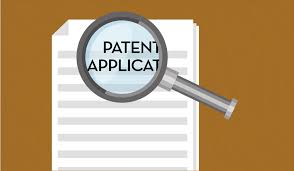Patent application is a special right grant to the owner for 20 years who created a new product or invent something unique and novel. According to this right, to sell in the market or to produce in any place, or to produce a product without the permission of the patent holder, no one else may use the new product or innovation after receiving the Patent registration in Chennai, The right of patent is grant not only for the products but also for the process by which the product is obtain. But the product or process must be new or involve an innovative step. Example: Amazon’s Alexa.

Patent office fees are located in Kolkata, New Delhi, Mumbai and Chennai. But the head office is in Kolkata. A patent registration is basically an invention,. Registration of a patent application is mandatory in nature. A patent application is a written document that provides all the information of a patentable invention. The applicant may use the methods for filing a patent application depending on market conditions, business matters.
Types of patent applications granted in India
- Normal or non-temporary application
- Convention application
- PCT International Application
- PCT national phase application
- Patent of addition
- Sectional application
1. Normal or non-temporary application
A general or non-temporary application is file if the applicant has no preference to make a claim or under no circumstances is the application file in pursuance of a previous convention application. Neither provisional application should be support by a full specification showing the detail search when file.
2. Show application
A show application is record to guarantee a need date dependent on the equivalent or huge comparable application documented in any of the show nations. The candidate should apply to the Indian Patent Office inside one year from the date of beginning recording of a similar application in the Show country.
3. PCT Global Application
The PCT application is a global application to smooth out the patent application measure in numerous nations on the double. It is represent by a patent company arrange and can be approve in 142 nations.
4. PCT public stage application
In every one of the nations a public stage application is record in which security is look for. The public stage application should be recorded inside 30 or 31 months from the date of need or from the global documenting date, whichever is prior.
5. Patent of expansion
In the event that there is an adjustment in the hunt that has effectively been applied for or patented, the candidate can document a patent for the expansion. Extra patents must be concede after an award of parental patents; hence, no new recharging expense should be sent during the term of the principle patent.
6. Sectional application
If a particular application claims for more than one exploration the departmental application is file if the applicant wishes to split the application to make two or more applications. The priority date for the departmental application is the same as for the parent application.
Criteria for granting patents
Innovation: Pursuant to Section 2 (1) (j) of the Indian Patent Act, “discovery” is a new product or process that involves an exploratory step and is capable of industrial application. Further, Section 2 (l) of the Act defines a ‘new invention’ as any invention or technology that is not expect by publication in a document or specify before the date of filing a patent application before being use in the country or anywhere in the world. , I.e., the subject has not fallen into the public sphere or is not part of the state of the art.
Innovative step: According to Section 2 (1) (j), an “exploratory step” is characteristic of an invention which involves technological advancement as compared to existing knowledge or has economic significance or both and the invention is not obvious to the skilled person. Is art.
Industrial Application: The third criterion of patentability is that the invention should be capable of industrial application. Section 3 (1) (AC) of the Patents Act, 1 of 1970, defines an inventory as “capable of industrial application” because the invention is “capable of being made or used in industry.” Therefore, in order to be patentable, the invention must be useful.

The basis for denial of patent application in India
Rejection by IPO is mostly raise in Section 15 proceedings, which account for 1637 denials. Section 15 is not refer to in isolation and is use in conjunction with other departments, at which point, the IPO calls for a hearing (under Section 14), requesting the applicant for clarification. In cases where the applicant fails to clarify the objections raised under section 14, the Controller rejects the application under section 15. Act. Section 11 was otherwise cite along with other clauses in 117 cases.

Benefits
The time it takes to start serving the inventor from the first step of patent registration means he applies for that patent. As soon as the applicant files a provisional patent application in Bangalore he or she will receive protection and assurance that no one will be able to claim the same invention, within 12 months. If another person or company files a similar patent application, the request will be denied for the filing period.
Authorizes complete freedom of update
The granted patent gives researchers the right to do anything with their ideas for a valid period, which is 20 years in India. Within this period, no one will be able to use, sell or research the original invention without the consent of the owner. Moreover, the researcher owns all rights to sue an unauthorized user for using his ideas as such use violates the patent, which is a criminal offense.
Generates ROI (Return on Investment)
If the owner feels that his search does not yield the expected results, and he wants to entrust it to any successful or deserving person, he can easily do so. Patent registration in Chennai allow him to commercialize the investment while earning a good amount on his investments.
Gives good market conditions
Patent law allows an inventor to gain significant public impression and improve his portfolio by declaring public registration. It helps him to build his reputation in the market and build good relationship with competitors and customers. All of these factors will ultimately increase its profits.
Allows public disclosure
Patent rights enable the inventor to go public which not only builds its portfolio, but also increases the company’s funding, business partners and market value. Sharing information about the discovery in public will show the researcher’s good command and specialty on technical topics. It will benefit its owner by attracting high-end and leading investors, business partners, shareholders and customers.

